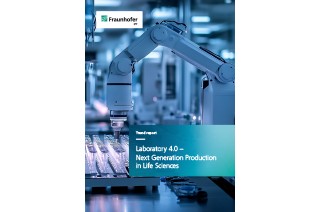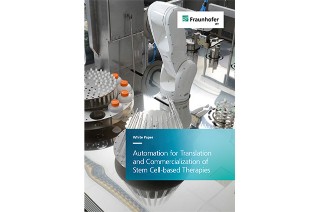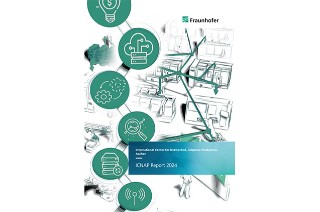Here you will find bundled information on trends and innovations: White papers, trend reports and studies that we ourselves have summarized and elaborated as results of our research and development projects, but also works of our partners in which we have significantly contributed. Find out about our work results free of charge and look into the future with us!
The trend report "Laboratory 4.0 – Next Generation Production in Life Sciences" presents cutting-edge technologies driving the transformation toward fully automated, digital, and sustainable labs. It highlights key innovations and real-life applications.
more info














